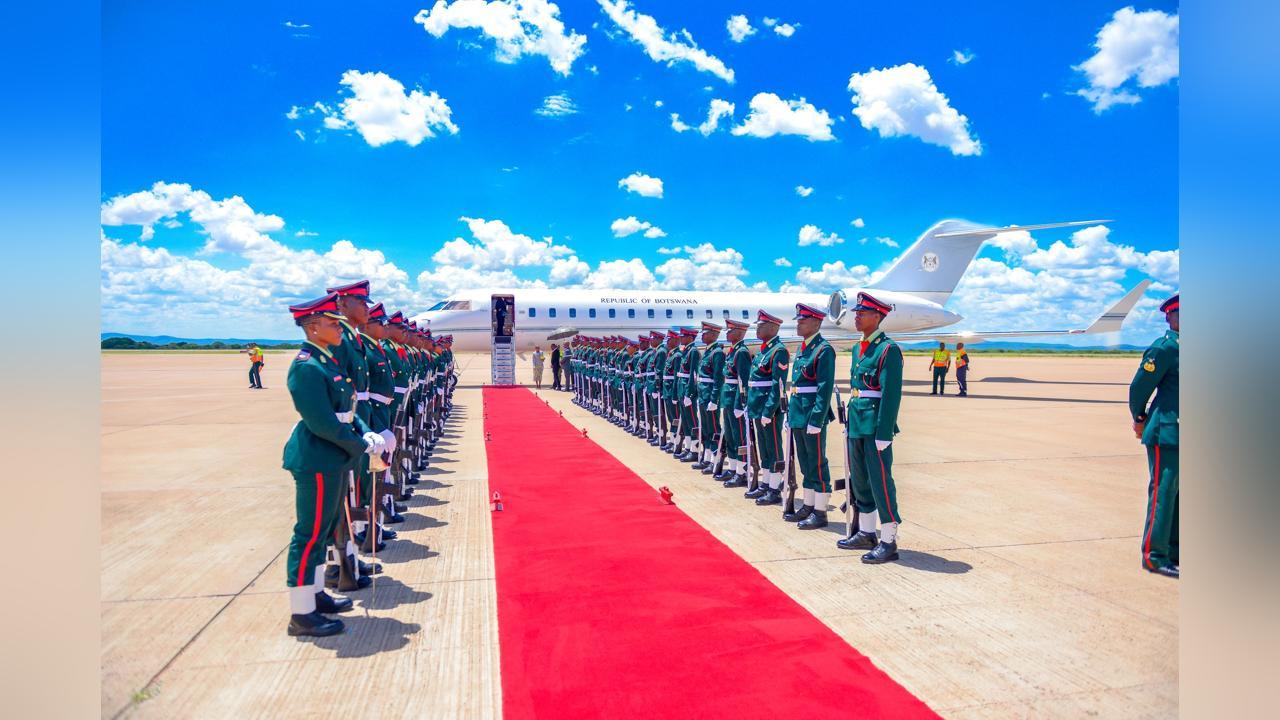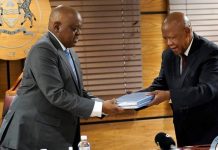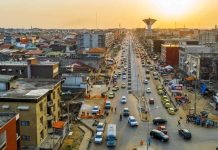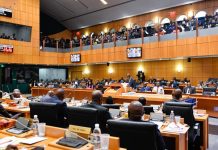Africa-Press – Botswana. As the OK1 presidential plane ascended from the runway tarmac of the Kamuzu International Airport in Lilongwe, Malawi, commencing President Advocate Duma Boko’s return home on Monday, relations between Botswana and Malawi had simultaneously began soaring to new heights.
President Boko had just concluded a three-day state visit where the two states committed to reviving their Joint Permanent Commission on Cooperation (JPCC), which had not met since 2013, and to ensure their diplomatic relations translated into visible outcomes in trade and investment.
He told a joint press briefing he held with his host, President Dr Lazarus Chakwera, that Botswana and Malawi were prepared to effect change by transforming the livelihood of the citizens.
“We met to strengthen our relationship. We engaged in deep reflection, not just sentimental platitudes, but to reimagine our countries. Our people are anxious; they want to be lifted from poverty. Young people are restless, they want jobs as well as places and spaces that allow their talents to thrive. We stand committed to action and we shall execute diligently,” said President Boko.
He said Botswana and Malawi had occasion to explore strategic areas of cooperation and would act to bring tangible outcomes.
“We need to build a new Africa which offers every African life, hope, pride and dignity. Botswana, Malawi, we should see each other through the shared prism of a common vision, of an Africa that has risen, is dominant and leads the whole world. It is a vision that tests our mettle. We need to build this future, piece by interlocking piece,’ said President Boko.
Dr Chakwera thanked President Boko for his independence day message to the Malawian nation, wherein he charged Malawi to introspect on their path from independence and work towards charting a new developmental path towards shared prosperity.
Acknowledging that Malawi had faced a myriad of developmental challenges, compounded over the past five years by COVID-19, the rise of food and fuel prices prompted by the Russia-Ukraine war, climatic conditions such as tropical cyclones and El Nino plus a cholera outbreak, Dr Chakwera said the country had been resilient, backed by supportive neighbours like Botswana.
He hailed Botswana as a beacon of hope in the African continent in terms of democracy, good governance and prudent management of national resources, adding that his government looked forward to mutually beneficial bilateral relations.
The two leaders said they had agreed to focus on strategic areas such as trade and investment, health, agriculture, aquaculture, tourism and youth empowerment which could yield benefits in the medium to short term.
They resolved to hold regular JPCC meetings, the next one to be hosted by Malawi before year end, and Dr Chakwera also accepted President Boko’s invitation for a reciprocal state visit to Botswana.
Botswana Investment and Trade Centre (BITC) and their Malawi counterparts also agreed to a Memorandum of Understanding to commence work to unlock trade and investment opportunities for the two nations’ private sector to access each other’s markets.
Earlier on July 7 morning, President Boko had wound up his visit by planting a tree at the Malawi Parliament building where he was hosted by Ms Catherine Hara, the Speaker of the National Assembly of Malawi.
President Boko also laid a wreath at the Kamuzu Masoleum, the burial site of Malawi’s founding President Dr Kamuzu Banda, under whose leadership Malawi established diplomatic relations with Botswana in 1966, and who in 1976, attended Botswana’s 10th anniversary of independence in Gaborone.
As Malawi bid President Boko a fond farewell with a 21-gun salute accompanied by the musical ensemble of the Malawi Defence Force ceremonial guard strumming the respective anthems, Fatshe Leno La Rona, and Mlungu Dalitshani Malawi, a new course in bilateral relations had been charted.
For More News And Analysis About Botswana Follow Africa-Press






